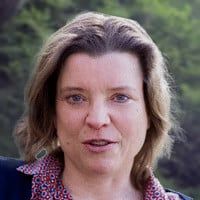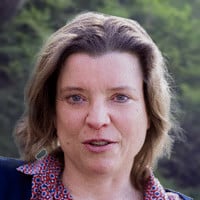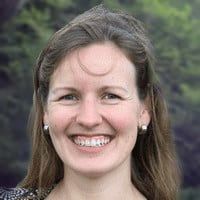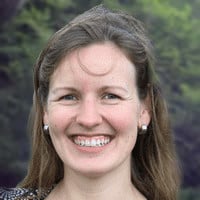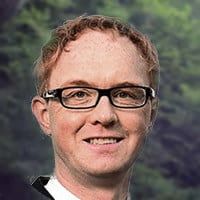Gabriele Köhler
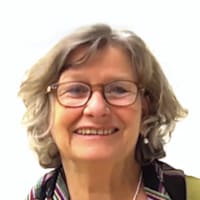
Former Visiting Fellow and Senior Research Associate
Gabriele is a development economist.
After a career with the United Nations spanning more than 25 years in a wide range of positions with UN-ESCAP, UNCTAD, UNDP, and UNICEF, she is interested in three areas of research and policy thinking: the emerging development agenda beyond 2015 and the – neglected – role of the state; the discourse around human security and human rights; and the interface of social protection with broader social and economic policies, notably employment and decent work, international trade and investment policies. Her publications, journalistic articles, and advisory work focus on political economy and policy issues. Her regional specialization is Asia, notably South Asia and Southeast Asia.
By training, Gabriele is a macroeconomist educated at the universities of Tübingen, Munich, and Regensburg in Germany. She has been an ACUNS Senior Visiting Fellow at the University of Ottawa (1989/90), a Visiting Fellow at the IDS Sussex (2010/12) and will be a Visiting Fellow at UNRISD throughout 2014.
Gabriele is a board member of Women in Europe for a Common Future, and of the UN Association of Germany, an elected member of the UNICEF National Committee Germany, and, as a hobby, on the board of the Friends of the State Museum of Ethnography, Munich.
Gabriele Köhler collaborated with UNRISD for the project inception workshop for New Directions in Social Policy, 2014. For the workshop, she wrote the draft paper “New Social Policy Directions? Some Reflections on South Asia”.
Gabriele also presented a seminar in the UNRISD Seminar Series on Innovation, Human Rights and Feasibility: Development and Welfare Policy in South Asia in May 2014.
Gabriele became an UNRISD Senior Research Associate in September 2014.
Is there hope for a structural change?
We sat down and talked to Gabriele Köhler a Development Economist, former UN official, and Human Rights advocate, about what we foresee for our society, economy, and planet 20 years from now. In her paper ‘’Creative Coalitions’’, she explains how, in a world marked by increasing exploitation, an unequal concentration of wealth and unfettered capitalism, there is room for hope and optimism thanks to new coalitions of people in civil society coming together to fight repression and standing up for common causes, mandates and concerns.
We spoke with Gabriele Köhler during the conference: Overcoming Inequalities in a Fractured World: Between Elite Power and Social Mobilisation, organized by The United Nations Research Institute for Social Development (UNRISD).
The title of her presentation was :
CREATIVE COALITIONS IN A FRACTURED WORLD: AN OPPORTUNITY FOR TRANSFORMATIVE CHANGE?
Find out more about UNRISD here: http://www.unrisd.org

Gabriele Köhler: My name is Gabriele Köhler, a development economist. I’m associated with the
UN Research Institute for Social Development.
I’m also affiliated with a non-governmental organization called Women Engaged For A Common Future, and I also work
with the UN Association of Germany.
Nerina Finetto: Thank you so much for joining me,
how is this conference relevant to you?
Gabriele Köhler: I’m here because UNRISD has convened this conference at a time when I think many of us are extremely distraught, depressed, frightened by the fractured world which is one of the titles of the conference. And how to overcome all the inequalities that we’re experiencing and that are getting worse and worse. My question is, is there any space to be optimistic? Are there any counter trends against the increasing exploitation, increasing concentration of wealth, what I called unfettered capitalism. Capitalism that is no longer regulated by a social welfare state. Is there any space where we see some counter current that gives us some reason, even naively, to be optimistic, and that’s why I’m here.
Nerina Finetto: Are there reasons to be optimistic?
Gabriele Köhler: Well, the paper I’m presenting, I’ve called it “Creative Coalitions” and the idea is that we are seeing, because of this pressure and this intolerance and this new racism, because you know the increasing oppression of women. The persecution of civil society in many countries. We’re seeing new constellations in civil society, and even among unorganized citizens, of people coming together who didn’t use to have a common cause, a common mandate, a common concern. And so examples are, for instance, in the United States, the movement that started with the women’s march when the new president, when Trump was inaugurated, which is not really a feminist movement but it embraces very many different groups in American society. Of course feminists but also climate fighters, the people who are opposed to the American gun laws, et cetera. In Germany, we’re finding new alliances. Germany is where I live. We’re finding new alliances that we wouldn’t have seen, I think, 10 years ago where asylum seekers and organizations defending the rights of asylum seekers, are teaming up with the Federation of Industry, the Federation of Trade and Commerce to fight against government decisions to deport individual asylum seekers who are not recognized. The industrialists are interested in, you know, the vocational training expenses that they’ve incurred, but they’re also interested now in that individual because they’ve realized these are people who have a lot to give as well, you know as productive members in society. And the asylum seekers, of course, are defending their right to asylum but it’s a new coalition that we wouldn’t, as I mentioned, we wouldn’t have seen perhaps 10 years ago. And there’s many other examples like that and I think these kinds of new cross cutting constellations of fighting back against repression are what is giving some scope for hope. And I have to really add a very important footnote, I’m talking about developments in democratic societies. If we look at the low income countries that are dictatorships, people are being killed every day now. So this is not, I mean, it’s not to be taken lightly but where there is that democratic space, we are seeing these new coalitions. –
Nerina Finetto: What are the main challenges in your opinion here?
Gabriele Köhler: Well, for these groups, let me start with the positives. I think they have, you know, they have a lot of momentum, they all have energy, they’re getting quite clever also in terms of, you know, producing emotional values. You know they have the stickers and you know the songs and the banners, et cetera. So there is some cohesion also coming just from movementalism, if you will. The challenges are, of course, that these groups, precisely because they’re cross cutting, don’t really have negotiating power. So it’s not like a trade union that can go on a strike. So there’s no negotiating power. Also, because they are cross cutting, sometimes there are sometimes there are strange bedfellows, so one is coalescing with groups, amongst groups, that one would actually see with reservation. So that, you know, at the same time is the Achilles heel of these kinds of movements.
Nerina Finetto: And where does your passion come from?
Gabriele Köhler: You know, I think I’m passionate about this nowadays because I’m a grandmother and I have three grandchildren, three beautiful grandchildren, who are very young and I’m really worried about their future. And so, you know, a part of being a political economist and being someone who has been interested in fighting for human rights. In my career, I used to be a UN official, but I think what’s really driving me the most now is thinking, 20 years from now what kind of society, what kind of an economy and what kind of a planet will these young children be living on?
Nerina Finetto: How do you feel the situation will have developed in the next 10 years?
Gabriele Köhler: Well, if this, you know, I mean, we can say that this create coalition is very naive because if we look at global production chains, how they work, how they exploit, how they exploit people, how they exploit the planet. If we look at the power of dictatorships, it’s very naive to think that some of these, you know, local or even regional opposition groups might actually change something. But I think if we don’t look at opportunities for fighting back then we would be totally lost. What will the world look like in 10 years? Well, I hope that we will see another eco-social turn in the publication that came out two years ago called “Transforming our world”, which relates to the SDGs, the Sustainable Development Goals. There was this notion that we had seen a social turn in the 1990s that was putting more emphasis with the millennium development goals, or in the 2000s, rather, putting more emphasis on social equality, social goals, social policy, interventions. And that we were thinking, even just two or three years ago that there was now an ecological social turn, whereas now these past two, three years we’ve been seeing more and more retrogression on policies and I think we need to, you know, if we don’t succeed in strengthening the eco, or coming back to an eco social turn, we will have a very, very difficult situation in 10 years. Both economically, ecologically and socially, and politically.
Nerina Finetto: What steps do you suggest should be taken to enable change?
Gabriele Köhler: Well, I think this particular conference is interesting because there is a lot of policy ideas floating around and some are quite, not conservative in the political sense, but you know we’ve seen them for a long time and it’s around increasing social protection, child benefits, social pensions, unemployment insurance, which has been on the agenda since 1919 if we look at the creation of the ILO. There are a lot of discussions this time, in this conference, around decent work which means at least minimum wage. Wages that actually enable people who are working to be socially, you know, in social insurance as well as having a decent income, as well as having accident and health insurance, et cetera. But there’s also now more discussions about how do we actually address the power hierarchies and the political change that is needed.
Nerina Finetto: How can we create structural modifications in power?
Gabriele Köhler: Well, I mean, again this is a bit, probably a bit too optimistic and a bit too naive but maybe these creative coalitions, these cross-cutting, coming together of civil society, which also would need to include political parties, progressive political parties, parliamentarians, and others. Perhaps they can succeed in challenging, you know, repression and planetary destruction and economic exploitation.
Nerina Finetto: What is the most important lesson you have learned so far in your career?
Gabriele Köhler: I think what I’ve been learning lately is the important, you know, it’s something that, as a political economist, one is of course always aware of, but I think it’s becoming more prominent in research in the past few years. The importance of power, the importance of power constellations, the importance of hierarchies, the importance in social exclusion, in economic exploitation. How it’s really a relational element that is formed by where you stand, where one’s position or one’s group position is in the social and political and economic hierarchy.
Often in the past, we have seen a change in the people holding the power, but we have not seen a change in attitude and direction. Do you agree?
I would agree, I think if we look at past social movements, there is always that risk that those who are then in power become like those who they’ve overthrown. I lived in Nepal, I worked in Nepal during the Nepal civil war. I was there in 2007 when the civil war was over and there was a peace agreement and we were all very disappointed on, you know, in subsequent political alliances that went back to the old mode of order.
The same thing we’re seeing in Myanmar today. I think many of us were very, very excited when Myanmar started opening up politically and a few years later, we see genocide against the Rohingya, so again, you know, there’s a new group or possibly partially new group in power, but the old patterns of oppression are reappearing.
Nerina Finetto: How did you get into this field?
Gabriele Köhler: -I think I was always fascinated by the idea of the United Nations, of something that is driven by principles, by human rights, by values, by normative ideas. And I think to this day, I do believe that ideas can change the course of history but of course, it takes a lot of good fortune and it takes a lot of coalitions.
Nerina Finetto: What message would you give to your younger self?
Don’t despair. Don’t give up.
What kind of society do you dream of?
Gabriele Köhler: Well I think we, everyone who’s at this conference, I think, shares the idea of an egalitarian society that does not exploit the planet. Egalitarian in the economic sense, in the social sense, that everyone is included. The UN agenda calls it leaving no one behind, and that also includes letting the planet survive. Changing one’s ecological behavior and I think there’s many different aspects of what needs to be done, yes.
Nerina Finetto: You wanted to work for the United Nations, did you find what you, as a young woman, expected?
Gabriele Köhler: I think one has a, if you’re outside of the United Nations, one has a very idealizing, romanticizing notion and of course, the United Nations is on the one hand the secretariat with lots of very, very dedicated people who want to change the world, as it were. But of course, it is also, you know, 192 member states who are quite different in what they’re expecting of the United Nations and what they’re doing in their own country. So I think, you know, you’re asking what I’d tell my younger self, maybe to be more realistic about how much one can achieve in a lifetime.
Nerina Finetto: What message would you like to give your grandchildren?
Gabriele Köhler: I think to fight for social justice. I mean, I mean I would use a different word with the grandchildren but, to be fair, I think something you deal with young children it’s a lot of it is about teaching them to be fair and to recognize each other’s dignity and the dignity of the earth on which they are.
Nerina Finetto: What is life about?
Gabriele Köhler: I think it’s about social justice, gender justice, and climate justice.
Nerina Finetto: Thank you so much for this conversation. And thank you for watching, thank you for listening and thank you for sharing.
Former Visiting Fellow and Senior Research Associate
Gabriele is a development economist.
After a career with the United Nations spanning more than 25 years in a wide range of positions with UN-ESCAP, UNCTAD, UNDP, and UNICEF, she is interested in three areas of research and policy thinking: the emerging development agenda beyond 2015 and the – neglected – role of the state; the discourse around human security and human rights; and the interface of social protection with broader social and economic policies, notably employment and decent work, international trade and investment policies. Her publications, journalistic articles, and advisory work focus on political economy and policy issues. Her regional specialization is Asia, notably South Asia and Southeast Asia.
By training, Gabriele is a macroeconomist educated at the universities of Tübingen, Munich, and Regensburg in Germany. She has been an ACUNS Senior Visiting Fellow at the University of Ottawa (1989/90), a Visiting Fellow at the IDS Sussex (2010/12) and will be a Visiting Fellow at UNRISD throughout 2014.
Gabriele is a board member of Women in Europe for a Common Future, and of the UN Association of Germany, an elected member of the UNICEF National Committee Germany, and, as a hobby, on the board of the Friends of the State Museum of Ethnography, Munich.
Gabriele Köhler collaborated with UNRISD for the project inception workshop for New Directions in Social Policy, 2014. For the workshop, she wrote the draft paper “New Social Policy Directions? Some Reflections on South Asia”.
Gabriele also presented a seminar in the UNRISD Seminar Series on Innovation, Human Rights and Feasibility: Development and Welfare Policy in South Asia in May 2014.
Gabriele became an UNRISD Senior Research Associate in September 2014.

